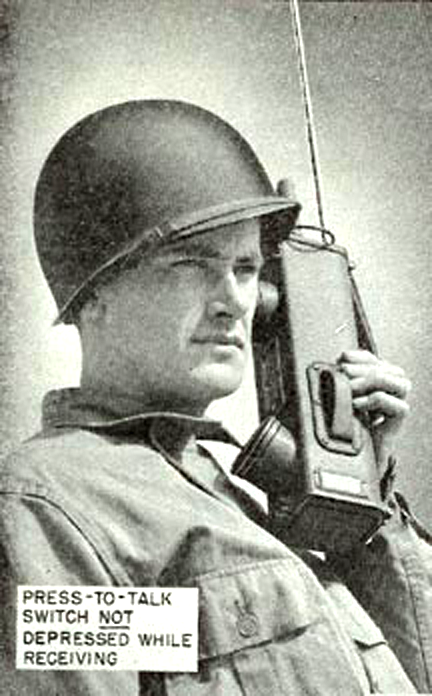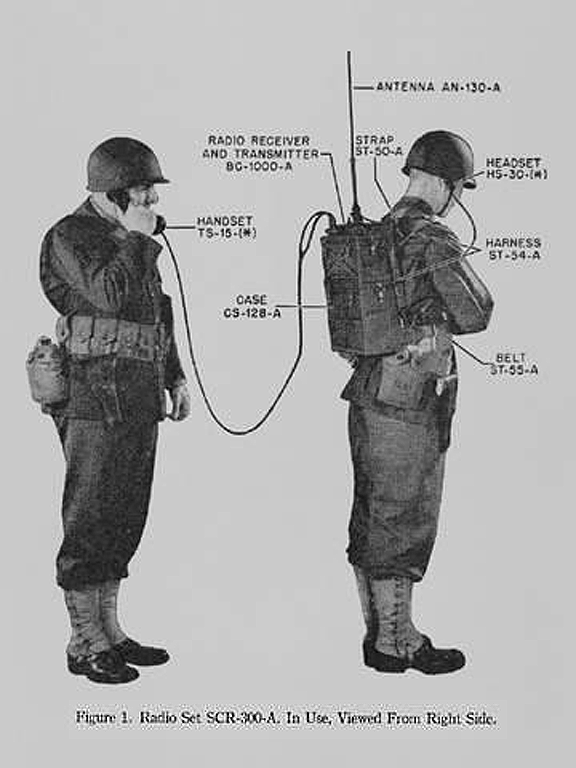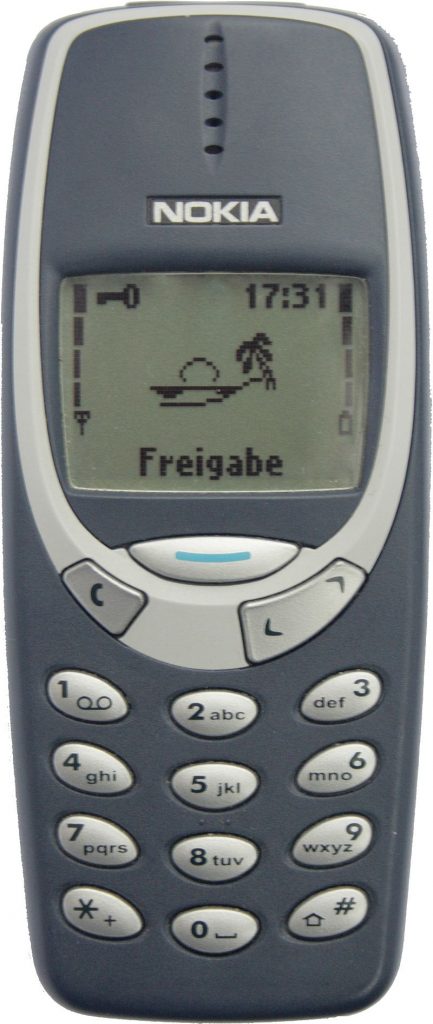The Curiosity of the Word “Handy” Posted by Sten on Apr 19, 2018 in Culture, Language
Last weekend, we looked at the word USB-Stick, a so-called Scheinanglizismus (pseudo-anglicism), an English-looking word, that actually has no, or not the same, meaning in the English language. I thought it would be fun to dive a little deeper into these Scheinanglizismen. Today, we look at the German word Handy. Handy? Yes. Handy.
Previous installments of Curious Words
The Curiosity of the Word “Cousin”
The Curiosity of the Word “Hochzeit”
The Curiosity of the Word “USB-Stick”
Where does it come from?
*This article (though in German), gives an even more extensive explanation! I got much of the information from there.*
The word Handy has some English origin. In the 1940s, US soldiers used to communicate in military operations with “Walkie-Talkies” – literally somebody with a backpack (who walks) and another person that uses the device (who talks). An innovation of this was a handheld device that no longer required a backpack. This was very handy, indeed, as one person could do the talking without requiring another person to have this bulky backpack strapped on. And because it was handheld, the “Handie-Talkie” became a thing.
Somehow, walkie-talkie remained the term for the handheld devices too, however.
When walkie-talkies and other such radio transceivers (Funkgeräte) became more commonplace in the 1970s and 1980s, the word Handy popped up more as well. The Handycam was introduced, Funkgeräte got names containing Handy… But mobile phones did not exist yet. Phones only existed with a fixed line. Or car phones. Even though in English, “handy” is an adjective, during this time it became widely known in Germany as a substantive noun – das Handy was born.
So when mobile phones became a thing, the English had either “cellular phone” or “mobile phone” on offer.
“Cellular phone”, which you could translate as Zellulartelefon reminds too much of Telefonzelle (phone booth).
“Mobile phone”, or Mobiltelefon was widely associated with a car phone, as that was the only way a phone could be mobile at the time. “Mobil” was associated with mobility (Mobilität) and Automobil (Automobile), so associating a new product with that would be confusing.
Many other terms were proposed (such as Mobi, Mini, Foni). Mobiltelefon or Funktelefon are too large words for the small devices that they are, so Handy stuck around. In 1996, the Duden first incorporated it in its dictionary.
Also, what happens in plural? Simple:
Das Handy; die Handys
And so even though Handy has no English equivalent, Germans use this very English-sounding word for cell phone! A real Scheinanglizismus!
Are there other German words for it?
Other words for Handy are das Mobiltelefon (mobile phone). Das Smartphone (smart phone) has also become a lot more common in recent years, due to the ascent of the smart phone being a new concept with new possibilities, a larger form factor (e.g. larger screens) than traditionally a Handy. However, for its brevity, Handy is still the preferred form in German.
What do you call a Handy in your language? Is Handy a term used in your language as well? Let me know in the comments below!

Build vocabulary, practice pronunciation, and more with Transparent Language Online. Available anytime, anywhere, on any device.







Comments:
Héctor valderrama:
Hallo! Nice day. In fact I would to focus on the word cellphone wich means technically a device whom depends on many retransmiters along the land so called cells, because one antena transmit information to an other and so on just to reach your device. This way is how many antenas transform into an efficient fast net.
In my contry is more common the anglicism celular whit out the sufix phone. Many people ignore the meaning of the word, they just use it obeying the gammar and sintaxis of spanish.
Many times is more common the abreviation cel, just like that.
For example: me das tu cel?
Hei doå.
Allan Mahnke:
Regarding Héctor Valderrama’s comment: Occasionally, though admittedly rarely, (in the US) I hear “cell” used instead of the full “cellphone.” I hear it most often when someone asks for the user’s telephone number. It becomes “my cell number.” These are all fascinating posts! Many thanks!
John Loth:
A walkie-talkie in French is
Le talkie-walkie.
Found this in The Collins Robert French Dictionary (second edition 1987) Just struck me as funny. JEL